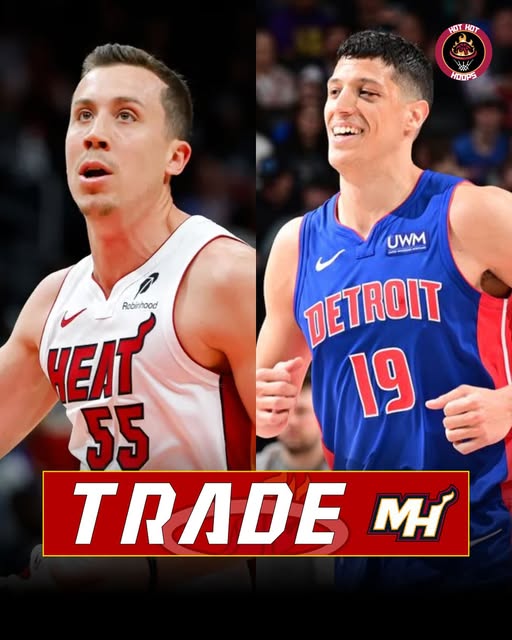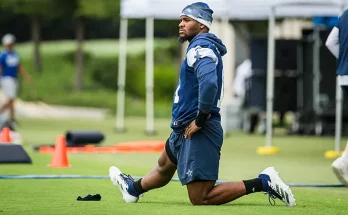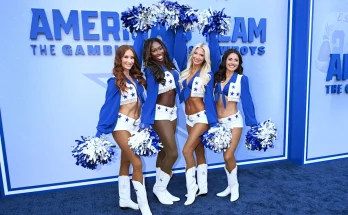Duncan Robinson’s move from the Miami Heat to the Detroit Pistons marks one of the most intriguing and significant shifts in the NBA landscape for the upcoming seasons. The three-year, $48 million deal that Robinson has agreed to with the Pistons signals a major investment in a player who has steadily built a reputation as one of the league’s premier shooters and a dynamic role player. This signing not only reflects the Pistons’ strategic direction but also highlights Robinson’s growth as an athlete and the increasing value of sharpshooters in modern basketball. To truly appreciate the weight of this agreement, one must explore Robinson’s journey, his impact on the Heat, what he brings to Detroit, and what this means for both the player and the teams involved.
Duncan Robinson’s story is one of perseverance and unexpected rise. Unlike many NBA stars who come into the league as high-profile college prospects or lottery picks, Robinson’s path was far less conventional. He was not initially regarded as a top NBA prospect. After playing at Williams College, a Division III school where he was a standout but largely under the radar, Robinson transferred to the University of Michigan, where he played his final two years at a higher collegiate level. Even then, he was not a typical first-round pick talent. Robinson went undrafted in 2018, which made his journey into the NBA all the more impressive.
The Miami Heat took a chance on him, signing him as an undrafted free agent. Robinson quickly demonstrated that he was not only capable of surviving at the highest level but excelling in a very specialized role. His shooting ability, particularly from beyond the three-point arc, became his hallmark. Robinson’s quick release, impeccable footwork, and high-volume accuracy made him one of the league’s deadliest three-point shooters. Over the years, he carved out a niche for himself, becoming a vital part of the Heat’s offensive scheme, which prized ball movement and spacing.
Robinson’s emergence coincided with Miami’s rise as a perennial playoff team. His shooting was a critical factor in the Heat’s system, which relies on versatile shooters who can spread the floor and create opportunities for superstars like Jimmy Butler and Bam Adebayo. His ability to hit contested threes, in clutch moments, and at a consistent rate made him a reliable offensive weapon. In Miami, Robinson became a symbol of the team’s culture — gritty, hardworking, unheralded, but immensely impactful. His journey from undrafted to indispensable epitomized the Heat’s identity under head coach Erik Spoelstra, who has a knack for developing overlooked talent.
As Robinson’s stock rose, so did his value in the marketplace. By the time his contract was up for renewal, he was one of the most sought-after shooters in free agency. The Detroit Pistons’ decision to offer him a three-year, $48 million deal reflects the growing trend in the NBA where shooters with high efficiency from deep are premium commodities. In today’s game, where pace and space dominate, having a player like Robinson, who can stretch defenses and punish opponents from distance, is crucial. The Pistons see Robinson as a cornerstone piece in their rebuild and a player who can help elevate their offense instantly.
Detroit is a franchise in transition. After years of struggling to find consistency, the Pistons have been piecing together a new core around young talents such as Cade Cunningham and Jaden Ivey. Adding Duncan Robinson to the mix brings veteran shooting expertise that was missing in their roster. For the Pistons, Robinson’s arrival means their floor spacing will improve dramatically, allowing their young playmakers to operate with more room and reducing the defensive pressure on them. His experience as a role player on a winning team also brings a winning mentality to a team still trying to find its identity.
Robinson’s role in Detroit will be slightly different from his time in Miami. While he was part of a contending team where his minutes and shot attempts were somewhat limited by the presence of stars, in Detroit, he will likely have a larger role and more offensive responsibility. The Pistons will rely on his shooting to generate offense and create opportunities not just for himself but for his teammates as well. His ability to shoot from deep will force opposing defenses to extend out, which could open lanes for driving guards and big men to exploit. This strategic shift is vital for Detroit as they seek to build a more dynamic and versatile offense.
Financially, the deal is a significant commitment for the Pistons. The three-year, $48 million contract makes Robinson one of the better-compensated role players in the league. This contract reflects not only his shooting prowess but also the premium that NBA teams place on efficient shooting in the modern game. It is a sign that Detroit is serious about adding quality pieces around their young stars to accelerate their rebuilding process. The investment in Robinson is expected to pay dividends both on and off the court as he brings stability and reliability to their lineup.
For Duncan Robinson, this deal represents validation and an opportunity. From undrafted status to earning a near $50 million contract is a testament to his work ethic, skill development, and perseverance. Robinson’s rise has been meteoric, but it has also been methodical. He has spent years honing his craft, improving his conditioning, and learning how to contribute to a winning team environment. This new chapter with Detroit gives him the chance to take on a leadership role and continue to prove that undrafted players can become major contributors in the NBA.
Robinson’s game, however, is not just about shooting. While his reputation is built on three-point shooting, he has developed other facets of his game that make him more than a one-dimensional player. His defensive effort, while not elite, has improved, and he brings energy and hustle on both ends of the floor. His off-ball movement is excellent, constantly seeking open spaces and making himself available for catch-and-shoot opportunities. This basketball IQ and willingness to sacrifice individual stats for team success are part of why he has earned the respect of coaches and teammates alike.
From a broader perspective, Robinson’s contract underscores a shift in the NBA’s valuation system. The league has seen a marked increase in the value of shooters, especially those who can maintain high efficiency and volume over multiple seasons. Teams are willing to allocate significant cap space to players who can fundamentally change the spacing and offensive dynamics of a team. Robinson fits this mold perfectly. His presence on the floor demands defensive adjustments and opens up playmaking options for others, increasing overall team effectiveness.
Detroit’s acquisition of Duncan Robinson can also be seen as a savvy move in terms of market positioning and fan engagement. The Pistons have been looking for ways to reinvigorate their fan base and demonstrate progress toward competitiveness. Adding a player known for exciting three-point shooting and clutch performances sends a positive message. It shows that Detroit is committed to building a team that can compete and entertain. Robinson’s personality, work ethic, and style of play fit well with the culture the Pistons want to promote—one of hustle, precision, and modern basketball excellence.
Looking ahead, the challenge for Robinson will be to maintain and even elevate his performance in a new environment with increased expectations. Transitioning to a rebuilding team often means more minutes but also more responsibility. Detroit’s pace and style may differ from Miami’s, and Robinson will need to adapt accordingly. However, his past shows he is capable of adjusting and thriving under new circumstances. His skill set is timeless in the current NBA landscape, and as long as he stays healthy and consistent, Robinson should continue to be a valuable asset.
Moreover, Robinson’s signing has ripple effects for Miami. Losing one of their best shooters will necessitate adjustments in their offensive schemes. The Heat have historically been adept at adapting to roster changes, and while Robinson’s departure is a loss, it also opens opportunities for other players to step up. The Heat’s system under Spoelstra is known for flexibility and the development of versatile players who can fill various roles. Miami will likely look to replace Robinson’s shooting either through internal development or new acquisitions. But it is undeniable that Robinson’s absence will be felt, as his shooting helped define the Heat’s offensive identity.



